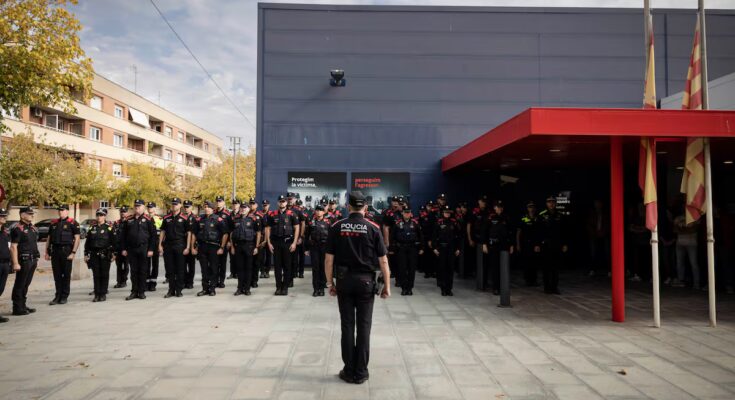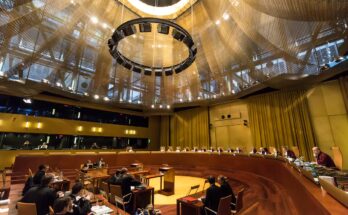The judicial investigation into the minor allegedly sold by her family from Corella (Navarre) to a family from Mollerussa (Lleida) ended, as often happens with early marriages, in failure. The judge of Tudela (Navarre) was forced to dismiss the case provisionally after the 14-year-old denied everything in her deposition: she said she had been with the new family “voluntarily”, she denied having been married to a 21-year-old young man and she denied being forced to beg.
Without a statement from the victim, the lack of other concrete evidence (the alleged payment of 5,000 euros could not be proven and the parents exercised their right not to testify) led the magistrate to close the case. Protection measures have also decreased and the minor would have returned to her family, in any case outside the radar of the Administration, which cannot intervene outside of the Catalan or Navarrese social services that monitor her situation.
The Navarre Public Prosecutor’s Office is studying the procedure to evaluate whether to appeal the case, as sources from the Public Ministry explained to this newspaper. But the abrupt end of the criminal case does not surprise investigators. Early marriages arranged in exchange for a sum of money detected in Spain, especially among the Romanian gypsy community, usually follow the same path: without criminal consequences. It happened with minors under 14 and similar cases in Cuenca and Ciudad Real, explain those responsible for the fight against human trafficking. “We understand the judge’s decision to dismiss the case, but the frustration we feel is enormous,” these sources say.
The case of the minor who grew up in Corella, a Navarre town of less than 9 thousand inhabitants, seemed to have started on the right foot: with a spontaneous confession to the crime of human trafficking for the purpose of forced marriage. On August 25, local police officers identified the father on the street, who explained that he had sold his daughter for 5,000 euros to a Romanian gypsy living in Mollerussa. That day the mother added that the teenager lived in France with her “husband”. The case was left in the hands of the Guardia Civil, who a month later collected the statement of an alleged friend of the mother, to whom he had told that the minor had been sold for that sum of money and also for “five bottles of whiskey and some food”. The witness provided the photos published on Facebook of the ceremony in which, presumably, the minor married the young man.
Although the minor already resided in Mollerussa with her in-laws, there was no further news of her until October 4, when a neighbor from Les Borges Blanques (Lleida) saw her at the door of a supermarket while asking for food and alerted the police. THE buyers They went to the police station and introduced themselves as the girl’s uncles to take her away, but the Mossos verified that the Guardia Civil had issued a protection notice. From that moment on, the teenager was placed under the protection of the Catalan Generalitat and the five people who allegedly participated in the transaction were arrested.
The investigation was undermined on Friday, when, as the victim, the minor declared that she was living “voluntarily” with “her uncles and a cousin” in Mollerussa. When asked about the Facebook photos, she said they were not from her wedding but from “a different family celebration.” Given the strength of that story, the facts of the police report could not be substantiated due to the lack of “marginally corroborating it,” the judicial resolution says. The witness, the one who handed over the photos, only has background information, while the parents’ silence ruins their talkativeness with the local police. “What counts is what they say in court,” remind judicial sources.
Tradition and law
The declaration of a 14-year-old girl, dependent on her family and steeped in their traditions, cannot be the only evidence, warn the sources consulted. “We should see how much attention he received before testifying, whether it was explained to him what his life would be like if he reported or what resources would be made available to him once he was outside the protection of the family unit,” explains Carme Vinyoles, of the Valentes i Acompanyades association, which fights against forced marriages. Vinyoles believes that “further investigations” could have been carried out before closing the case.
In some Romanian gypsy communities, the payment of a certain amount of money when agreeing for a marriage between families is considered a dowry. Child marriage continues to be a reality, despite the fact that the legal age of consent in Spain (16) converts any relationship the Navarrese minor has had with her partner into sexual violence. “Custom is not a legal basis,” recalls a senior police officer involved in the fight against human trafficking. Despite officers’ efforts to “objectify” forced marriage situations (for example, by tracking payments), they often fall on deaf ears due to the opacity of these payments or the context in which they occur.
“Without a statement from the victim, it is difficult to follow a trial and it is even more so when there are no witnesses or indicative evidence. It is sad but that is how it is”, say judicial sources, who admit the “lack of protection” in which the minor could be left. The director of the Navarro Institute for Equality, Patricia Abad, declared this Monday that “there are many interpretations” of the case and recalled that forced marriages, even if they are “rare”, are “cases of sexual violence”.


